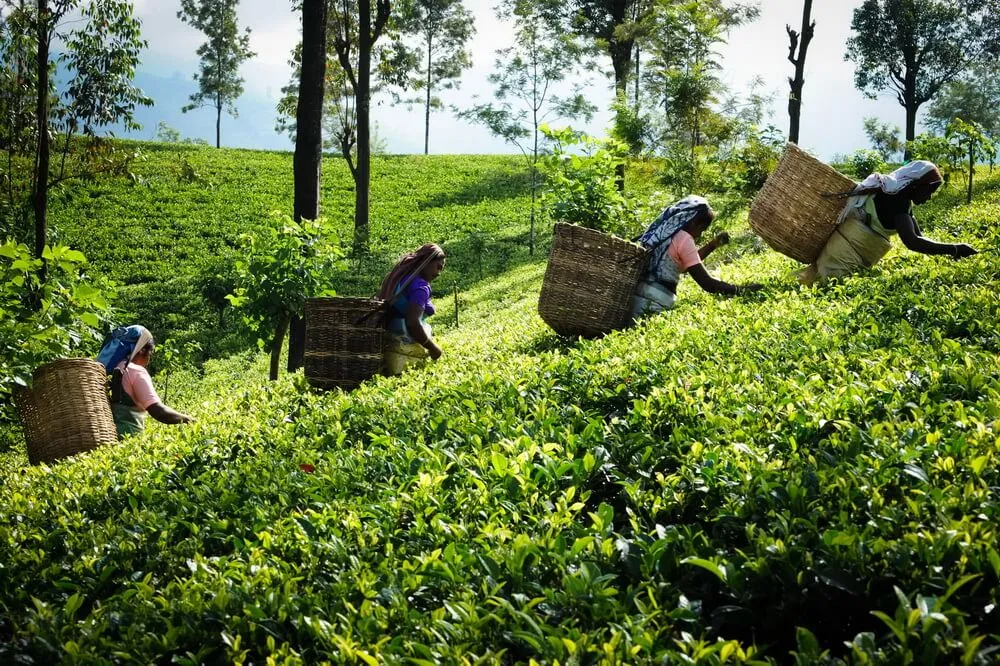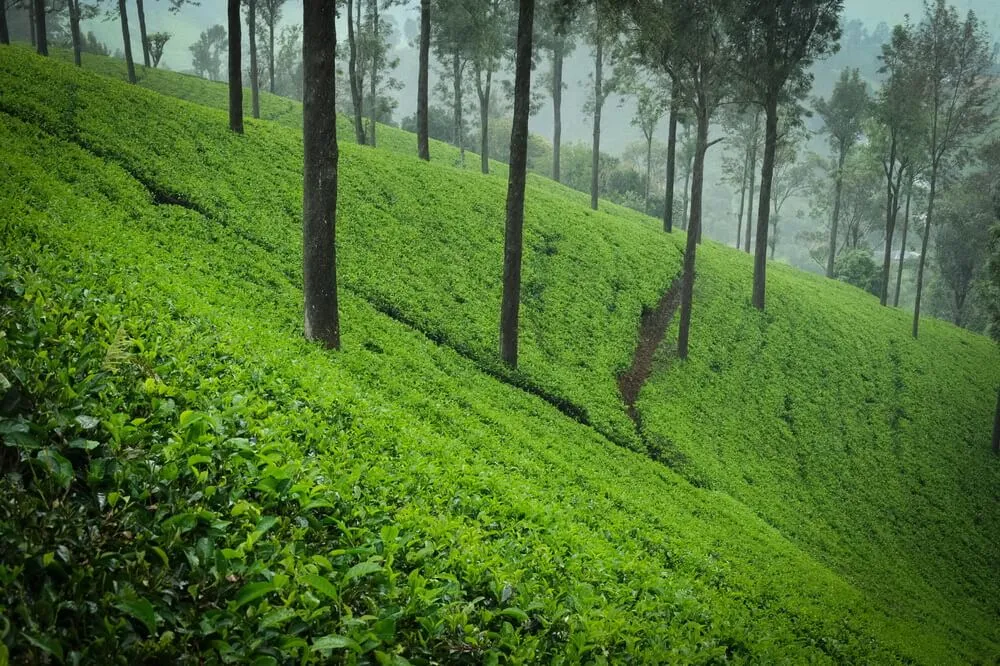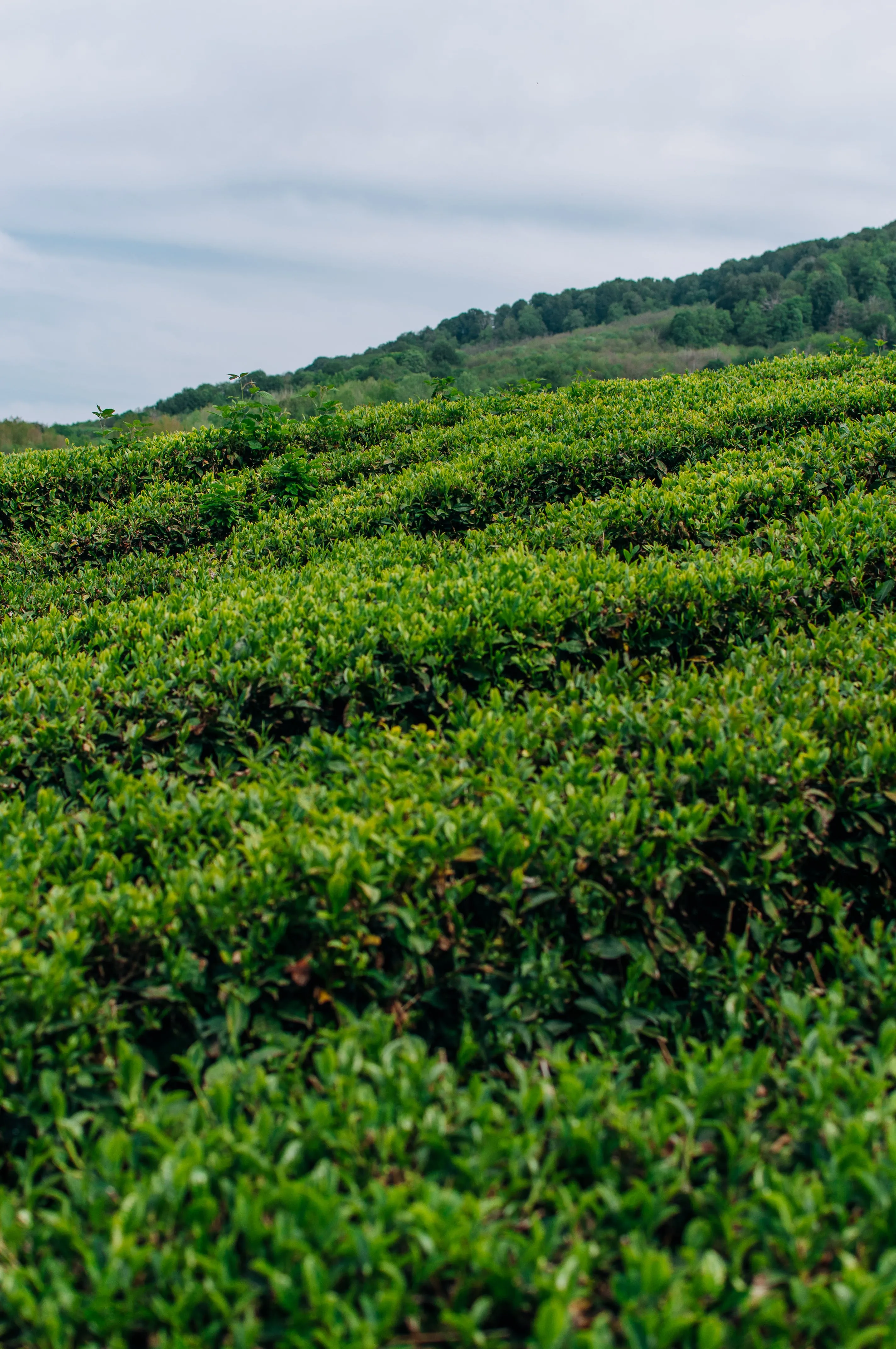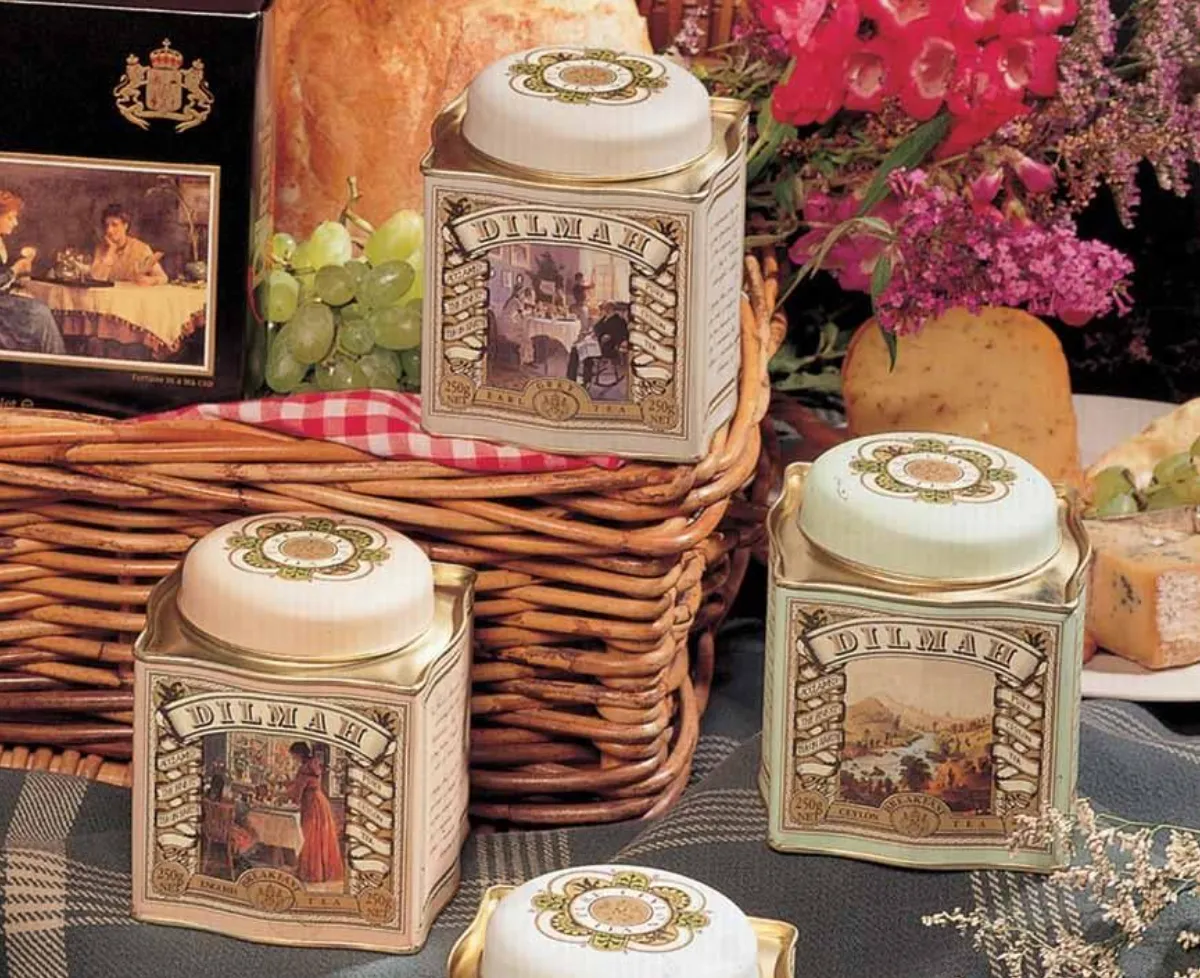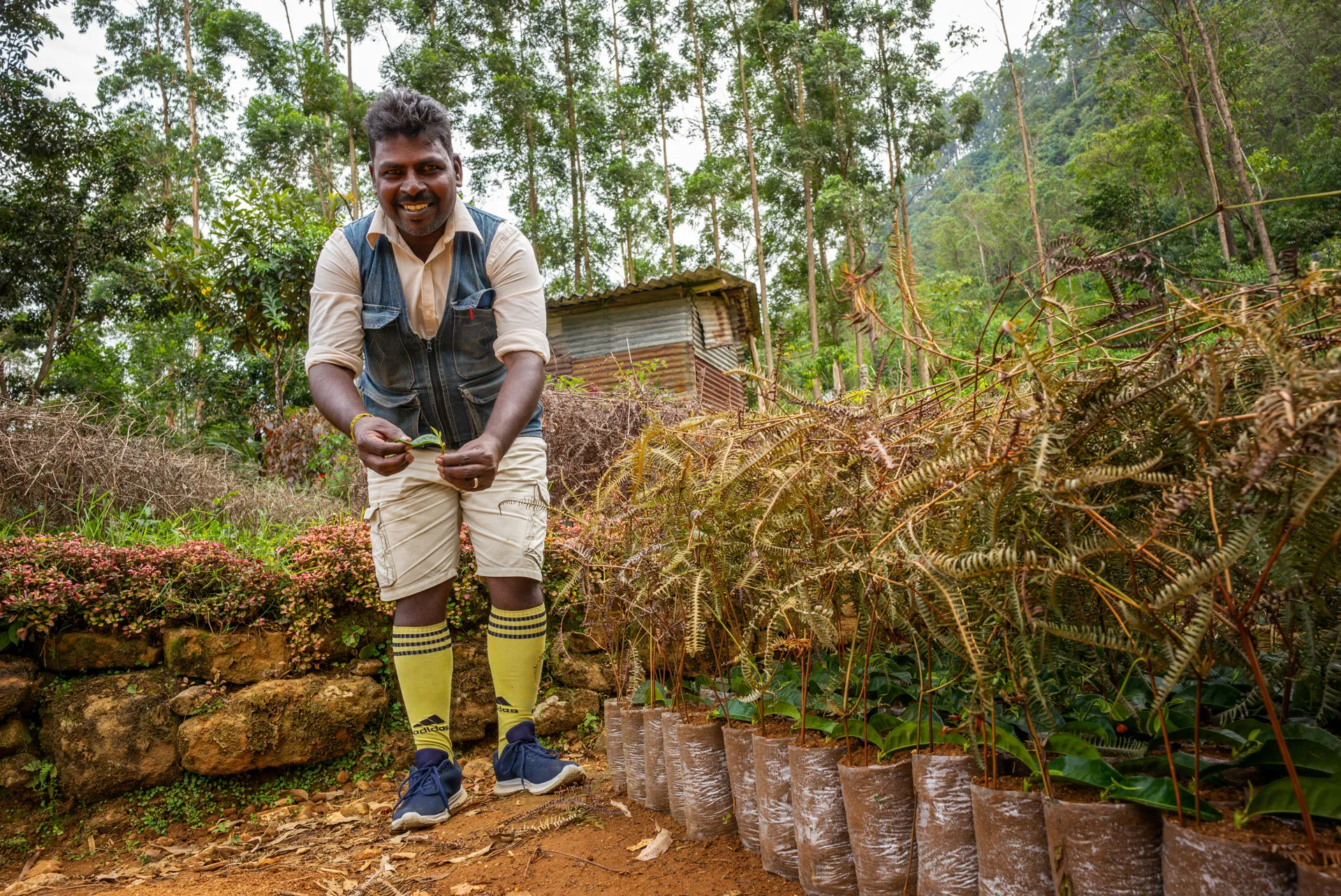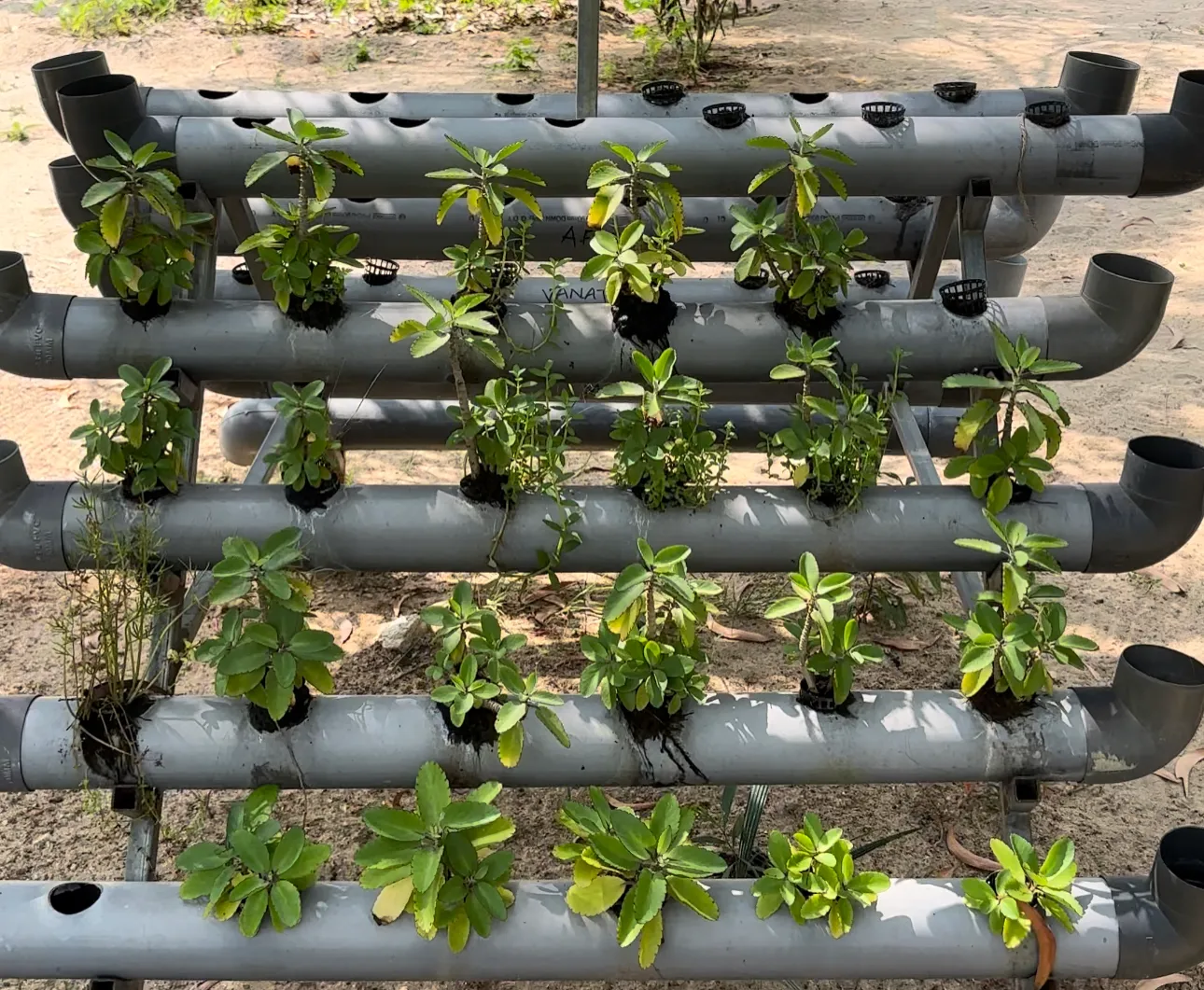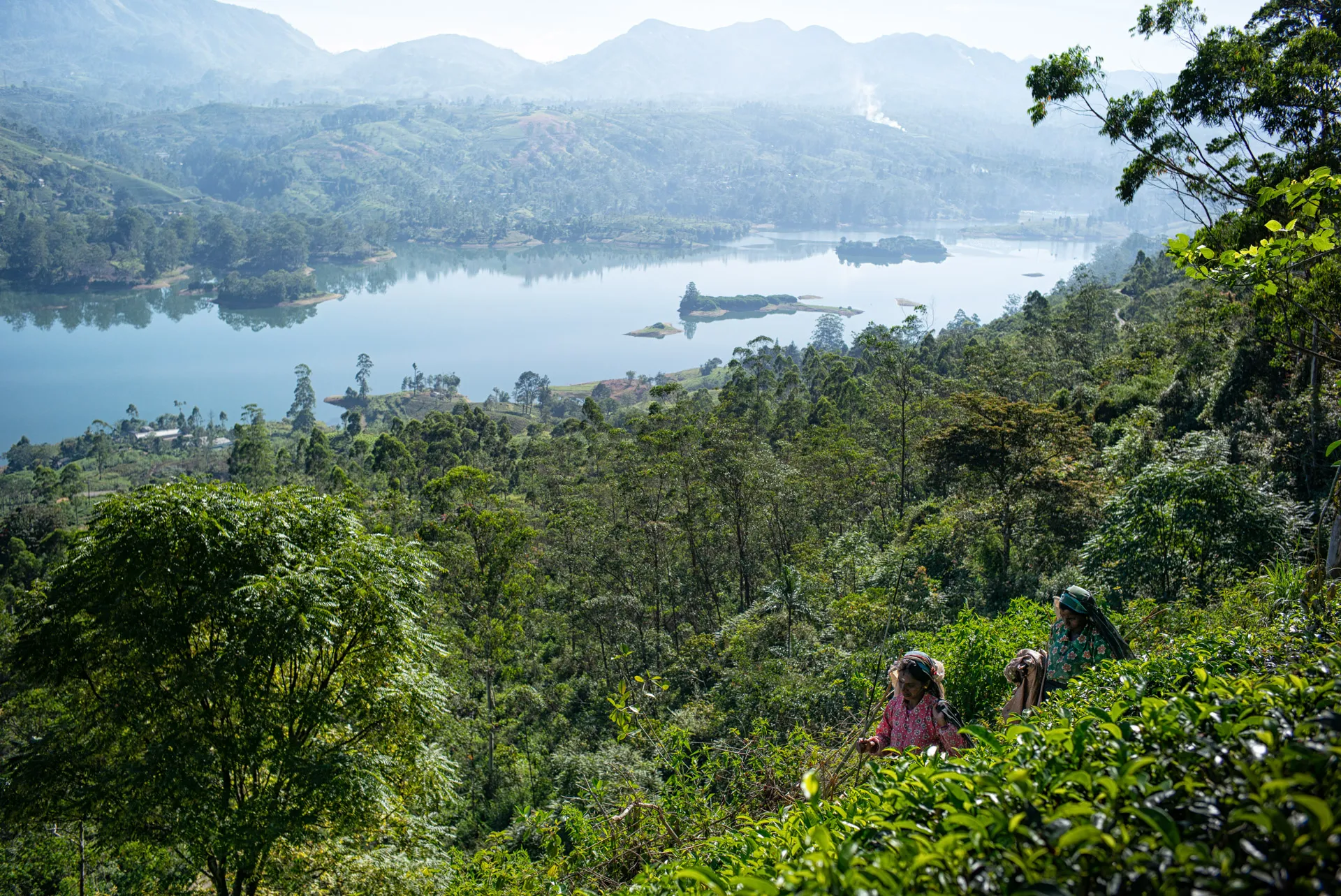Brewing Independence: Our Founder and Sri Lanka's Tea Legacy
While Sri Lanka celebrated its Independence Day on February 4th, 1948, the tea industry's journey to freedom from British rule took longer. Let’s dive into this story of perseverance and pride, and follow the pioneering steps of our founder MJF.
Chapters
Sri Lanka's Tea Industry: From British Rule to Independence
February 4th is Sri Lanka's National Day, also known as Independence Day. It's a big deal because it's the day Sri Lanka became free from British rule in 1948. There, it is a national holiday, celebrated with a nationally televised presidential speech, flag-hoisting ceremony, parades and dances.
However, as we celebrate the independence of this beautiful island, we must remember the journey that the Ceylon tea industry and Sri Lankan tea producers had to go through to truly become free from British rule.
At that time, tea was the country's economic backbone, providing about a million people with direct and indirect work opportunities. It was the highest earner of foreign currency. However, because the trade was still controlled by foreign, primarily British, owners and investors, the earnings from the tea industry went to bank accounts and pockets outside Sri Lanka rather than aiding the newly independent country. This continued long into the 1960s, impeding important developments in the Ceylonese economy.
In their eagerness to maintain control, and with the arrogance demonstrated in so many comparable colonial situations, the British tea planters ran their business like a club with a small membership. No Ceylonese were ever allowed to train as tea tasters. Those tasks were only for 'members'. Locals were permitted to serve as recruiting agents or factory managers, but despite the Ceylon government's repeated appeals for foreign corporations to teach local tea professionals, skilled jobs were strictly and fiercely guarded.
Towards Ceylon Tea Independence
It's important to note that alongside British and foreign investors, local Sri Lankan planters were also actively buying land and developing tea estates, particularly in the low-lying regions. While the British concentrated on higher altitudes, these locals focused on coastal areas where they grew tea, rubber, and coconuts. Their pioneering efforts were vital in developing these agricultural areas. In 1909, to support these local producers, the Low-country Products Association was established, including future Prime Minister Don S Senanayake as a member. Thus, despite the industry's predominant control from London, Sri Lankan businessmen were also involved and successful.
In the period leading to Independence, there was an increasing awareness in Sri Lanka of colonial exploitation, both politically and financially, and the global divide between the wealthy and the poor. Post-independence, efforts were made to localize employment, land ownership, unions, banking, and investment. However, the ongoing foreign control in plantations posed a significant obstacle to these efforts.
Some local leaders in newly independent Sri Lanka continued to embrace British traditions and upheld the colonial mindset. However, individuals like Merrill J. Fernando recognized the risk of relying too heavily on the London market, especially in the crucial plantation sector. They understood the need for change to foster true independence. Merrill, an ambitious young man at the time, was acutely aware of the challenges in the tea trade and knew he needed innovative strategies to succeed in an industry long dominated by the British.
Merrill J. Fernando: Pioneering a New Era in the Ceylon Tea Trade
Merrill J. Fernando began his journey in the tea industry around the time Sri Lanka gained independence. Having completed his education in 1950, he was among the first group of Sri Lankan apprentices trained in tea tasting, a program initiated by the Tea Commissioner, Mr. P Saravanamuttu. To support himself, he started a small business in Negombo, supplying quality tea to local shops and restaurants, sourcing from North Meddeloya Estates and private auctions. He emphasized the quality and freshness of his tea, a strategy that would define his career. This approach quickly attracted customers, who preferred his high-quality teas over more common varieties. Soon enough, Merril was establishing a name for himself in the tea industry.
However, despite his training and early success, Merrill J Fernando struggled to enter the British-controlled tea industry in Sri Lanka. He briefly worked in petroleum before joining a British tea company, A.F. Jones, as a tea taster. A year in London with Joseph Travers & Sons opened his eyes to the industry's focus on price over quality and deceptive marketing practices. This experience convinced him of the need for a radical shift in how Ceylon tea was marketed and sold, as global players could easily choose cheaper teas from other regions.
In his own business, Merrill implemented a unique practice of promptly shipping tea post-auction, setting a new standard in the industry. His dedicated team worked with a sense of ownership, contributing significantly to the success and strength of his enterprise.
After training in London, Merrill returned to Colombo in 1955 and continued working with A.F. Jones. By 1960, he became Managing Director, expanding the company and breaking into new markets. The company thrived due to its focus on quality and reliability, even supplying major international companies. Merrill's strategy included prompt shipping, earning loyalty from his team and customers.
In 1962, Merrill left A.F. Jones and eventually started his own company, Merrill J Fernando Co. Ltd. He focused on packaging and exporting high-quality tea directly from Sri Lanka, facing obstacles like higher freight charges and resistance from shipping cartels.
In these regards, Merrill also played a key role in changing the shipping and tea trade systems in Sri Lanka, advocating for local control and challenging established practices. He was instrumental in the 'Ceylonisation' of the tea trade, promoting local interests in the industry.
Post-independence, the tea industry faced threats of nationalization and declining British investment. Merrill's company, however, showed resilience and profitability despite these challenges. Later, government land reforms changed the ownership structure of plantations, eventually leading to a decline in productivity. In the 1990s, Merrill's company was invited to manage some estates, reflecting his continued influence and success in the industry.
The Birth of Dilmah: Revolutionizing Tea with Authenticity and Innovation
Despite challenges in the Ceylon tea trade and political turmoil in Sri Lanka, Merrill remained focused on his vision to create a brand selling 100% pure Ceylon tea, packed at the source. In the difficult economic climate of the mid-1970s, he temporarily left the tea business and Sri Lanka. However, after a life-changing car accident and encouragement from friends and business colleagues, Merrill decided to return to the tea trade.
By 1977, changes in Sri Lanka's economy provided a more favorable environment for business, and Merrill founded MJF Exports Ltd. He focused on exporting quality tea and developed strong international relationships. Yet, he was still committed to his goal of establishing a branded Ceylon tea company. He faced obstacles, like difficulties in importing tea bagging machines, but persevered.
In the 1980s, Merrill capitalized on the growing market for tea bags. He set up a packaging company, Package Care Ltd., and later co-founded Printcare Ceylon Ltd., which became a major supplier of tea bag packaging. In 1982, encouraged by government incentives, Merrill took his company public, listing Ceylon Tea Services Limited on the Colombo Stock Exchange.
A significant breakthrough came when he secured a contract to pack tea bags for G.J. Coles, a major Australian supermarket chain. This success led to more opportunities in Australia. Finally, in 1988, Merrill realized his dream by launching his own brand of tea, named Dilmah after his two sons, Dilhan and Malik. Dilmah, representing both high-quality tea and innovative packaging, was positioned as a family brand, embodying Merrill's dedication and entrepreneurial spirit.
Dilmah was more than a brand; it was a statement - of quality, purity, and a testament to Sri Lankan resilience and enterprise. The brand revolutionized the tea industry by packing 100% pure Ceylon tea at its source, ensuring the profits and pride stayed in Sri Lanka.
MJF Vision Continues
Merrill's journey wasn't just about building a brand; it was about transforming an industry, influencing national policies, and uplifting communities. His commitment to ethical practices and community development through his MJF Charitable Foundation and Dilmah Conservation are as integral to his legacy as his contributions to the tea industry.
So, as we celebrate Sri Lanka's Independence Day, let's remember the story of Merrill J. Fernando and Dilmah, which mirrors the spirit of a nation that fought for its identity and prosperity. Merrill's life and work remind us that with passion, resilience, and a dream, transformative change is possible.
Here's to Merrill, to Dilmah, and to Sri Lanka - a land of rich history, vibrant culture, and, of course, exquisite tea. Cheers with a cup of the finest Ceylon tea.
Explore the world of kindness
Have you ever wondered about the lifecycle of a tea plantation, particularly how new tea plants are cultivated and old ones are managed? I went to Dunkeld Tea Estate, where the art and science of tea begins in the nursery.
Discover how the MJF Centre for Dignified Empowerment and Sustainable Development helps Eastern Sri Lanka's recovery from natural disasters and addresses climate change through sustainable practices and community-focused initiatives.
You might have heard it already, but what is exactly World Earth Day? Let us talk you through what it stands for, what it means for us at Dilmah, and how it is not just a day but a part of our values.
